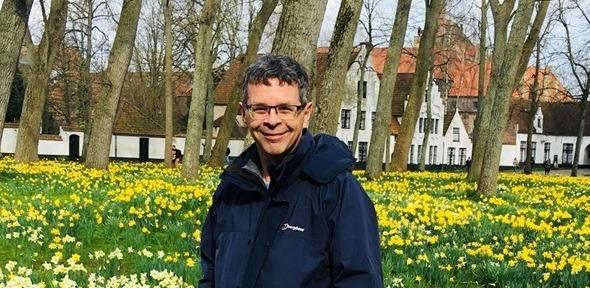
Submitted by Richard Arlett on Thu, 17/10/2024 - 10:49
Jean-Marc Dewaele is Honorary Professor at the Institute of Education, University College London and Emeritus Professor of Applied Linguistics and Multilingualism at Birkbeck, University of London.
His research spans social sciences and applied linguistics and focuses broadly on the effects of individual differences – often interacting with contextual variables – on multilingual language use and acquisition, with a focus on personality and emotion.
He has published widely on individual differences and is the 3rd most influential linguist in the world according to the Stanford rankings 2023.
His pioneering work has been recognised with numerous prestigious awards, including the Equality and Diversity Research Award from the British Association for Counselling and Psychotherapy (2013), the Robert Gardner Award for Excellence in Second Language and Bilingualism Research (2016) from the International Association of Language and Social Psychology and the Distinguished Scholarship Award from the European Second Language Association (2022).
Jean-Marc has held prominent roles in the field, including serving as president of Multilingualism and the European Second Language Association. He is currently the General Editor the Journal of Multilingual and Multicultural Development.
What is the main aim of your research (in this context) and what key questions or issues does it address?
All my research has focused on individual differences in foreign language learning and use. I’m particularly interested in uncovering learner-internal and learner-external sources of variation in foreign language learner emotions and the effects these emotions have on performance and progress.
What does your research involve you actually doing on a daily basis, and where do you typically carry out your work?
My research is accompanying me everywhere. It’s like an unfinished multicoloured three-dimensional puzzle of infinite size. I think about it while walking in green spaces, discuss it with friends and co-authors, then sit down behind the computer to try and operationalise the questions and verbalise them. I always work on 6 to 7 papers simultaneously, depending on the urgency of a particular task. Every paper requires a huge amount of time, sometimes re-analysis of the data, multiple rewritings and endless polishing.
What outcomes or contributions do you hope your research will lead to in the future?
I hope to prove that foreign language learning is not just driven by cognitive variables but by a complex and dynamic network of learner-internal sociopsychological variables and contextual variables including the curriculum, the teacher, the peers, the school and the wider cultural, political and historical context.
What aspect of your work is most exciting to you right now?
I’m trying to understand the relationship between transient task-specific learner emotions and the same emotions as they become more general and more stable over time.
How does this year’s symposium theme, “How can learning a second language be made effortless?”, relate to your research?
It is a provocative theme because only the learning of first language(s) can be perceived as effortless. Any language learnt later in life requires more effort but that does not imply it cannot be enjoyable. Just like skiing, cycling or martial arts, foreign language learning requires a certain amount of investment, resilience and optimism. The effort is richly rewarded when the new language opens unexpected doors to cultural riches and new social connections.
Is there anything else you’d like to add that you feel is relevant?
A good teacher acknowledges that foreign language learning is hard but that acquisition is perfectly possible with good guidance in a positive emotional classroom atmosphere.
